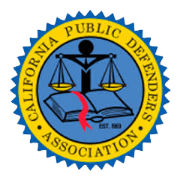
Being accused of sexual assault is a nightmare that no one should have to face alone. It’s normal to feel scared, confused, and unsure of what steps to take next. The good news? You’ve got options – and with an experienced lawyer by your side, you can mount a strong defense to safeguard your rights and clear your name.
In this Sexual Assault Defense Guide, we’ll walk you through everything you need to know to build a strong defense and safeguard your future. From understanding the different types of sexual assault charges to gathering evidence and navigating the legal system, we’ve got you covered. So take a deep breath, and let’s get started.
Table Of Contents:
- Understanding Sexual Assault Charges
- Defending Against Sexual Assault Allegations
- The Role of Evidence in Sexual Assault Cases
- Navigating the Legal Process
- The Impact of Sexual Assault Charges
- Choosing the Right Sexual Assault Defense Attorney
Understanding Sexual Assault Charges
Being accused of sexual assault is a life-altering event. The consequences can be severe, impacting every aspect of your life. It’s crucial to understand the different types of sexual assault charges, the potential penalties, and the factors that influence these charges.
Sexual assault charges vary depending on the specific circumstances of the case. Some common types include rape, statutory rape, sexual battery, and sexual abuse. The definitions and penalties for each charge differ from state to state.
Types of Sexual Assault Charges
Sexual assault charges are not one-size-fits-all. They can range from misdemeanor offenses to felony crimes. The specific charge depends on factors such as the nature of the alleged assault, the age of the victim, and the relationship between the accused and the victim.
For example, in Texas, sexual abuse of a child is a felony offense. It carries severe penalties, including lengthy prison sentences and mandatory registration as a sex offender.
Penalties for Sexual Assault
The penalties for sexual assault can be life-altering. Depending on the severity of the charge, you could face years in prison, hefty fines, and a permanent criminal record. Even after serving your sentence, you may be required to register as a sex offender, which can impact where you can live and work.
In Texas, the penalties for sexual assault range from two to 20 years in prison and a fine of up to $10,000. If the victim is a child, the penalties are even more severe, with a potential sentence of life in prison.
Factors That Influence Sexual Assault Charges
Several factors can influence the severity of sexual assault charges. These include the age of the victim, the relationship between the accused and the victim, the use of force or weapons, and the presence of any aggravating circumstances, such as the use of drugs or alcohol to facilitate the assault.
For instance, if the victim is a child under the age of 14, the charges will be more severe than if the victim is an adult. Similarly, if the accused used a weapon or caused serious bodily injury to the victim, the charges will be elevated.
Defending Against Sexual Assault Allegations
If you’ve been accused of sexual assault, it’s essential to mount a strong defense. The stakes are high, and the consequences of a conviction can be devastating. An experienced sexual assault defense attorney can help you navigate the legal process and build a compelling case in your favor.
Common Defense Strategies
There are several common defense strategies that can be employed in sexual assault cases. These include challenging the credibility of the accuser, arguing that the sexual activity was consensual, and presenting evidence of mistaken identity.
For example, if the accuser has a history of making false allegations or has a motive to lie, such as revenge or financial gain, this can be used to cast doubt on their credibility. Similarly, if there is evidence that the sexual activity was consensual, such as text messages or witness testimony, this can be used to refute the allegations.
Mistaken Identity Defense
In some cases, the defense may argue that the accused has been mistakenly identified as the perpetrator of the sexual assault. This can be a powerful defense strategy, particularly if there is no physical evidence linking the accused to the crime.
For instance, if the victim was assaulted by a stranger in a dark alley, and the only evidence is the victim’s eyewitness testimony, the defense may argue that the identification is unreliable. They may present evidence of an alibi or point to inconsistencies in the victim’s description of the attacker.
Consent Defense
Another common defense strategy in sexual assault cases is to argue that the sexual activity was consensual. This can be a challenging defense, particularly if the victim is a minor or if there is evidence of force or coercion.
However, if there is evidence that the victim consented to the sexual activity, such as text messages or witness testimony, this can be used to refute the allegations. The defense may also argue that the accused reasonably believed that the victim consented, even if they did not explicitly say so.
False Accusations Defense
Unfortunately, false accusations of sexual assault do occur. In these cases, the defense may argue that the accuser has fabricated the allegations for personal gain or revenge.
For example, in a contentious child custody battle, one parent may accuse the other of sexually abusing the child in order to gain an advantage in court. Similarly, a disgruntled ex-partner may make false allegations of sexual assault as a way to seek revenge or ruin the accused’s reputation.
The Role of Evidence in Sexual Assault Cases
Evidence plays a crucial role in sexual assault cases. It can make or break the prosecution’s case and can be the difference between a conviction and an acquittal. Understanding the types of evidence that may be presented and how to challenge that evidence is essential for mounting a successful defense.
Types of Evidence in Sexual Assault Cases
There are several types of evidence that may be presented in a sexual assault case. These include physical evidence, such as DNA or bodily fluids, medical evidence, such as injuries or signs of trauma, and testimonial evidence from witnesses or the accuser themselves.
For example, if the victim underwent a sexual assault forensic exam, also known as a “rape kit,” this can provide valuable DNA evidence linking the accused to the crime. Similarly, if there are witnesses who saw the accused with the victim or heard the victim cry for help, this can be used to corroborate the accuser’s story.
Challenging Evidence in Sexual Assault Cases
Just because evidence is presented doesn’t mean it’s infallible. An experienced defense attorney will know how to challenge the reliability and admissibility of evidence in a sexual assault case.
For instance, if the DNA evidence was improperly collected or stored, or if there is evidence of contamination, this can be used to suppress the evidence. Similarly, if the accuser’s testimony is inconsistent or contradicted by other evidence, this can be used to cast doubt on their credibility.
Navigating the Legal Process
Navigating the legal process in a sexual assault case can be daunting. From the initial investigation to the final verdict, there are many stages and complexities to navigate. Having an experienced criminal defense attorney by your side can make all the difference.
Stages of a Sexual Assault Case
A sexual assault case typically begins with an investigation by law enforcement. If there is sufficient evidence, the case will be referred to the prosecutor’s office for charges to be filed. From there, the case will proceed through various stages, including arraignment, pre-trial hearings, and potentially a trial.
Working with a Defense Attorney
Plea Bargains in Sexual Assault Cases
The Impact of Sexual Assault Charges
Sex Offender Registration Requirements
Being a registered sex offender can make it difficult to find housing, employment, and even personal relationships. It’s a lifelong label that can follow you wherever you go.
Employment and Housing Challenges
Social Stigma and Personal Relationships
Choosing the Right Sexual Assault Defense Attorney
Qualities to Look for in a Defense Attorney
Questions to Ask a Potential Attorney
-
- How many sexual assault cases have you handled?
- What is your success rate in defending against these types of charges?
- What is your approach to building a defense strategy?
- How do you communicate with clients throughout the process?
- What are the potential outcomes of my case?
Don’t be afraid to ask tough questions and to trust your instincts. You need an attorney who you feel confident can represent your best interests and fight for your future.
If you or someone you love is facing sexual assault charges in Texas, don’t wait to seek legal help. Contact an experienced sexual assault defense attorney today to schedule a consultation and begin building your defense.
Getting accused of sexual assault can turn your world upside down. It’s more than just understanding the charges; it’s about knowing how to fight back effectively. From the get-go, finding a sharp defense attorney who knows their way around sexual assault cases is key. They’ll be your guide, from untangling evidence that could clear your name to navigating through plea bargains if things look tough.
But remember, not all defenses are created equal. Whether it’s poking holes in the accuser’s story or proving consent, every detail matters. And don’t forget – sometimes accusations are false and driven by ulterior motives. Your lawyer will dive deep into gathering facts that support you.
The consequences of a conviction stretch far beyond jail time; they seep into every corner of your life – work, home, relationships. Facing up to this reality early on gives you a fighting chance to protect what matters most.
Conclusion
Facing sexual assault charges is a daunting and life-altering experience. But with the right defense strategy and a skilled attorney in your corner, you can protect your rights and fight for a fair outcome.
You’re not alone in navigating sexual assault charges. Knowing the different types, understanding evidence’s role, and having a robust defense strategy – these are all essential steps in protecting your future.
The road ahead may be challenging, but with the guidance provided in this Sexual Assault Defense Guide, you’re better equipped to navigate the legal system and build a compelling case. Stay strong, stay focused, and never lose sight of the fact that you deserve a vigorous defense.





